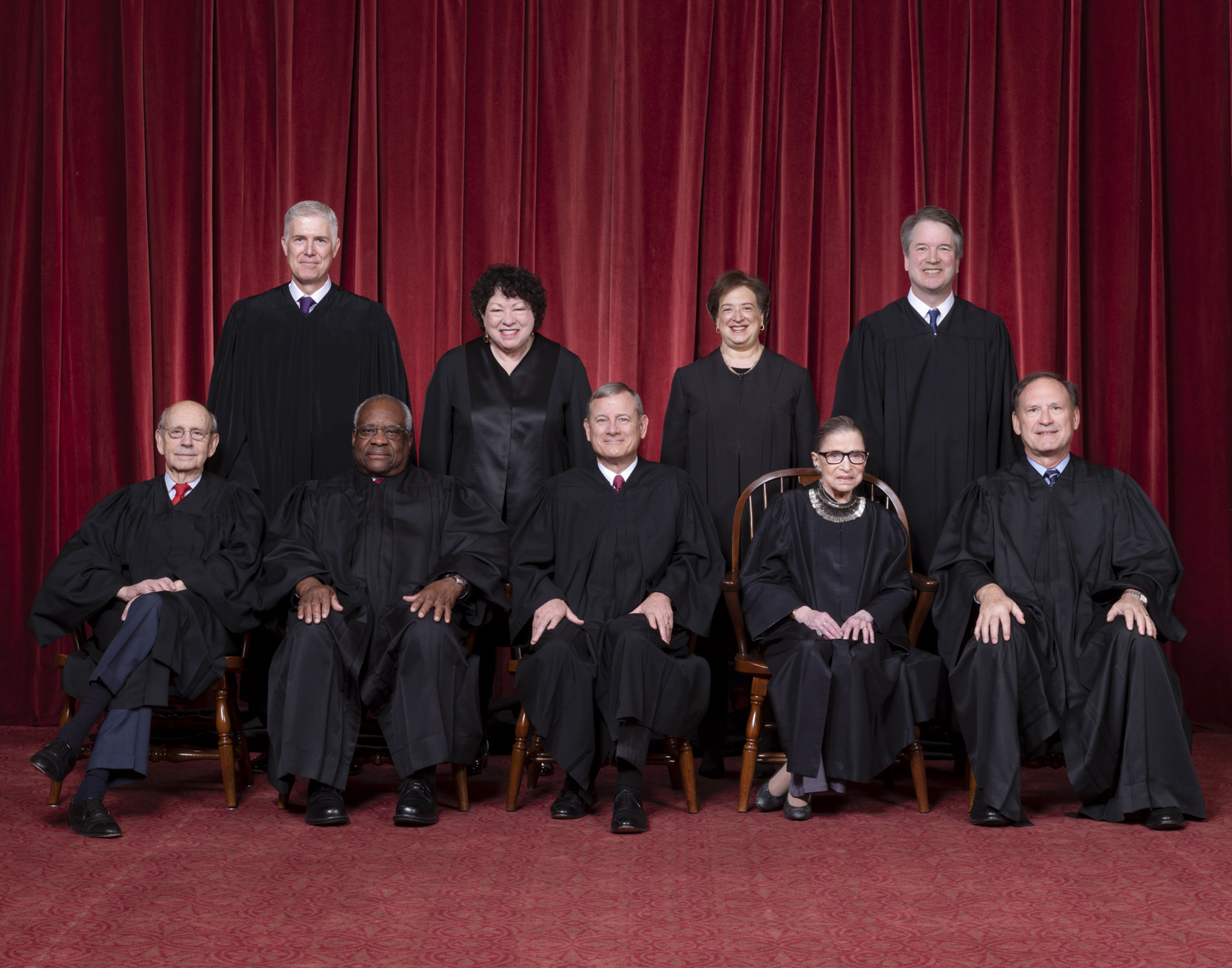
Sarah Sollinger
AP US Government and Politics
Ms. Gordon
8/21/19
The purpose of the United States Supreme Court is to ensure justice. It does so by interpreting and applying the Constitution. These interpretations are supposed to be unbiased. But as evidenced through Engel vs. Vitale, US vs Lopez, and Citizens United vs. FEC, we can see a pattern of how justices rule, suggesting there is no such thing as unbiased.
The first example of this, Engel v. Vitale, is when the New York Board of Regents authorized a voluntary prayer for the beginning of each school day. 370 U.S. 421 (1962). Some parents objected to the school organizing prayer and sued the school. The school prevailed in both the District and Appellate courts. The courts relied on the fact that the religious prayer was voluntary. Engel appealed arguing it violated their First Amendment rights that the government could not pass laws enforcing or establishing a preferred religion. Overturning the lower courts, the Supreme Court ruled that no government official, including teachers, should organize prayer in a government place - even if voluntary. This case was a landmark, putting a strong barrier between church and state and setting the precedent for future issues.
The second example occurred when a Texas high school student violated the Federal Gun Free School Zone Act (“FGFSZA”) by knowingly bringing a gun into a school. The District Court, in finding him guilty, decided that Congress did not exceed their legislative power under the Commerce Clause as schools broadly affect interstate commerce. Lopez appealed. The Circuit Court overturned the conviction, ruling that the FGFSZA was unconstitutional. The Supreme Court affirmed the Circuit Court decision finding that for Congress to use the Commerce Clause constitutionally, the activity being regulated must “substantially affect interstate commerce,” (United States vs. Lopez, 514 U.S 549 (1995) and schools did not. Since this case, it has become clear that we need this type of legislation even more so today. Since then the United States has had 57 times as many shootings as the other major industrialized countries combined. This proves how much of an impact Supreme Court cases can have.
Finally, before the 2008 elections, Citizens United wanted to put out a film criticizing Hillary Clinton which was illegal under the Bipartisan Campaign Reform Act (“BCRA”) and the Federal Election Campaign Act (“FECA”) because it was illegal for corporations to donate money for political advertisement. Citizens United sought an injunction against the Federal Election Commission (“FEC”), saying that section 203 of the FECA restricted their free speech. 558 U.S 310 (2010). The FEC prevailed in the district court because of an earlier Supreme Court case decision, McConnel vs. FEC. In the Supreme court they reviewed McConnel vs. FEC and Citizens United. The justices decided that it was unconstitutional under the 1st amendment because, spending money is considered a form of speech and by restricting their spending, it restricts their freedom of speech. By letting the candidates take money from corporations, today our political races are more focused on pleasing the companies, than the people of our country.
These three cases exemplified, that the political demographic of the court strongly influences their, supposedly unbiased, interpretation of the constitution. First, the conservative Roberts Court, which ruled in Citizens United that it was constitutional for corporations to spend money on political advertisements. This court sided with Citizens United, a conservative organization. The justices personal biases and beliefs clouded their interpretation of the law-making them able to justify the case for the side that best reflected their beliefs. Second, the conservative Rehnquist Court decided in US vs. Lopez that the FGFSZA was unconstitutional. Historically, the conservative party was a supporter of gun rights, and by outlawing the GFSZA, they were supporting a cause that was integrated in their political party. Finally, Engel vs. Vitale where a liberal court ruled that prayer in school was unconstitutional. Historically, the conservative party has upheld the importance of religion and the liberals have been advocates for a strong separation of church and state. This decision made by the Warren court exemplified their values. Through all of this, we can learn that as human beings we are not capable of being truly unbiased.
Work Cited:


Comments
Post a Comment